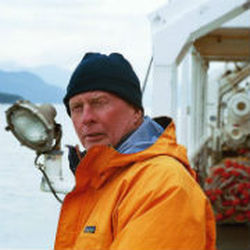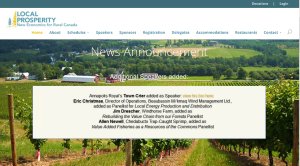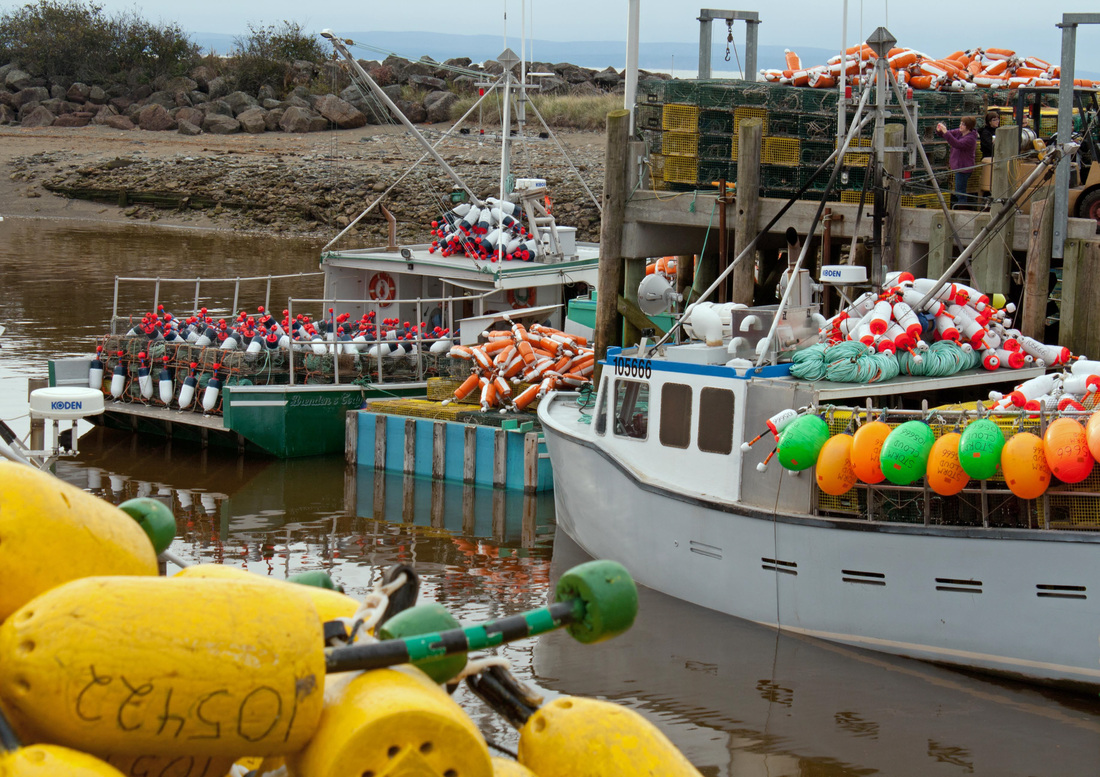
Gregory Heming believes that rural communities in New Brunswick and Nova Scotia are perfectly positioned to cultivate a new economy... one that thrives by creating local business to meet local needs.
And he should know…he has been helping rural communities grow their local prosperity potential for 40 years. Although he has witnessed his share of rural losses, he actively cultivates hope by sharing the many successes of communities taking charge of their own futures.
And he should know…he has been helping rural communities grow their local prosperity potential for 40 years. Although he has witnessed his share of rural losses, he actively cultivates hope by sharing the many successes of communities taking charge of their own futures.
Gregory is a municipal councilor for Annapolis County, Nova Scotia, and chair of the Economic Development Committee. He holds a PhD in ecology, and has been teaching, lecturing, counseling and writing about the principles of ecology and sustainable communities throughout his entire career.
Born in the Colorado ranch country, he moved to Halifax to attend Dalhousie University in the 1970s and while there, fell in love with the Annapolis area. He returned there to live permanently in 2006. "This is my last stand," he jokes.
Through his career, Gregory has served alongside some of the most well-known names in social and environmental justice, including authors Paul Hawken, Terry Tempest Williams, and Wendell Berry.
Gregory himself is a committed ecologist. “I have a passion for wild places and rural areas, and I have seen them die slowly over the last 30-40 years,” he says. His own native Colorado wilderness has been devastated by shale gas development in recent years with over 50,000 wells, so he knows all about the threats rural communities face from rampant exploitation of natural resources. But he believes sustainable forestry, farming and fishing economies are achievable.
“Our old economic model of unlimited growth is a myth,” he says. “You simply cannot grow infinitely on a finite Earth.” Rather than continuing the repeatedly unsuccessful practice of providing costly incentives to lure outside companies with no ties to the region - companies that promise jobs, but leave when the money runs out - governments must start investing in local entrepreneurs and economies.
But until that happens, he encourages rural communities to adopt a new vision by embracing ecological economics, which has at its heart, three pillars: sustainability, fair distribution of wealth, and efficient allocation of resources. All three of these contribute to human well-being and environmental sustainability, with growth that focuses on quality, rather than quantity; better instead of bigger.
It starts with citizens actively protecting local democracy and ensuring their community values are being represented politically. The second step is adopting co-operative models of business rather than pursuing large scale competitive models. “If you want to attract business, then it should be business that fills a need in the community, business that is motivated by purpose more than profit,” he says. “And we always keep in mind that the preservation of the ecosystem is paramount.”
Small communities look for ways to begin producing locally those items that were previously imported, such as food and energy. By working together, buying local, establishing co-operatives and social enterprises, encouraging local investments, community transportation, sharing resources, and partnering with non-profit organizations, they keep their buying power local. He points to the successes of Tatamagouche (strong spiritual culture), Summerside (renewable energy), and the Halifax Tool Library (tool sharing resource) as evidence of community collaboration that works.
Albert County is already moving in this direction with Foods of the Fundy Valley, farmers' markets, Tele-drive, Food Bank and community garden initiatives, our Connecting Albert County website, the Elgin Eco-Association, and the community hub proposal for Riverside Consolidated School. We are well-positioned to initiate more.
“There is no end to what communities can do. It just depends on what the local community wants, their skill levels and their ability to invest."
He says having a strong spirit in the community is vitally important. “One of my mentors, Wendell Berry, who is in his eighties, says he has seen far too many communities die through external exploitation or internal disaffection… the town gives up on itself, “ says Gregory.
“But if you have a community of people working at the heart level, then the rest takes care of itself. People are there because they care…they are connected at the heart. That is a big beginning.”
Article written by Deborah Carr. Deborah is a freelance writer and an ardent supporter of ''all things Albert County." www.deborahcarr.ca
******************
Gregory will be speaking at the Forest Dale Home Community Room on Sunday, April 26, from 7PM, as part of a tour of New Brunswick communities. His talk is entitled Active Hope: A Future for Rural Communities and it has been sponsored by Water and Environmental Protection for Albert County (www.wepac.ca).
If you have a heart and a desire to actively grow a new economy and a new future for Albert County, you won’t want to miss this.
Facebook Event Page
Download event poster below:
Born in the Colorado ranch country, he moved to Halifax to attend Dalhousie University in the 1970s and while there, fell in love with the Annapolis area. He returned there to live permanently in 2006. "This is my last stand," he jokes.
Through his career, Gregory has served alongside some of the most well-known names in social and environmental justice, including authors Paul Hawken, Terry Tempest Williams, and Wendell Berry.
Gregory himself is a committed ecologist. “I have a passion for wild places and rural areas, and I have seen them die slowly over the last 30-40 years,” he says. His own native Colorado wilderness has been devastated by shale gas development in recent years with over 50,000 wells, so he knows all about the threats rural communities face from rampant exploitation of natural resources. But he believes sustainable forestry, farming and fishing economies are achievable.
“Our old economic model of unlimited growth is a myth,” he says. “You simply cannot grow infinitely on a finite Earth.” Rather than continuing the repeatedly unsuccessful practice of providing costly incentives to lure outside companies with no ties to the region - companies that promise jobs, but leave when the money runs out - governments must start investing in local entrepreneurs and economies.
But until that happens, he encourages rural communities to adopt a new vision by embracing ecological economics, which has at its heart, three pillars: sustainability, fair distribution of wealth, and efficient allocation of resources. All three of these contribute to human well-being and environmental sustainability, with growth that focuses on quality, rather than quantity; better instead of bigger.
It starts with citizens actively protecting local democracy and ensuring their community values are being represented politically. The second step is adopting co-operative models of business rather than pursuing large scale competitive models. “If you want to attract business, then it should be business that fills a need in the community, business that is motivated by purpose more than profit,” he says. “And we always keep in mind that the preservation of the ecosystem is paramount.”
Small communities look for ways to begin producing locally those items that were previously imported, such as food and energy. By working together, buying local, establishing co-operatives and social enterprises, encouraging local investments, community transportation, sharing resources, and partnering with non-profit organizations, they keep their buying power local. He points to the successes of Tatamagouche (strong spiritual culture), Summerside (renewable energy), and the Halifax Tool Library (tool sharing resource) as evidence of community collaboration that works.
Albert County is already moving in this direction with Foods of the Fundy Valley, farmers' markets, Tele-drive, Food Bank and community garden initiatives, our Connecting Albert County website, the Elgin Eco-Association, and the community hub proposal for Riverside Consolidated School. We are well-positioned to initiate more.
“There is no end to what communities can do. It just depends on what the local community wants, their skill levels and their ability to invest."
He says having a strong spirit in the community is vitally important. “One of my mentors, Wendell Berry, who is in his eighties, says he has seen far too many communities die through external exploitation or internal disaffection… the town gives up on itself, “ says Gregory.
“But if you have a community of people working at the heart level, then the rest takes care of itself. People are there because they care…they are connected at the heart. That is a big beginning.”
Article written by Deborah Carr. Deborah is a freelance writer and an ardent supporter of ''all things Albert County." www.deborahcarr.ca
******************
Gregory will be speaking at the Forest Dale Home Community Room on Sunday, April 26, from 7PM, as part of a tour of New Brunswick communities. His talk is entitled Active Hope: A Future for Rural Communities and it has been sponsored by Water and Environmental Protection for Albert County (www.wepac.ca).
If you have a heart and a desire to actively grow a new economy and a new future for Albert County, you won’t want to miss this.
Facebook Event Page
Download event poster below:
| gregheming_poster-new.pdf |

*******************
Growing Local Prosperity
Gregory Heming is one of the organizers of Local Prosperity, a Nova Scotia conference focusing on how communities are creating prosperous futures and healthy economies that are cooperative, compassionate, and long-term - economies that provide meaningful and dignified work, respect nature’s capital, and reflect a culture of both growth and harmony.
He is also currently involved in Project Drawdown, an international initiative comprised of scientists, policy makers, analysts and activists, headed by Paul Hawken. They are plotting an actionable plan to actually reverse (not halt) the amount of greenhouse gases and lower global temperatures.
Growing Local Prosperity
Gregory Heming is one of the organizers of Local Prosperity, a Nova Scotia conference focusing on how communities are creating prosperous futures and healthy economies that are cooperative, compassionate, and long-term - economies that provide meaningful and dignified work, respect nature’s capital, and reflect a culture of both growth and harmony.
He is also currently involved in Project Drawdown, an international initiative comprised of scientists, policy makers, analysts and activists, headed by Paul Hawken. They are plotting an actionable plan to actually reverse (not halt) the amount of greenhouse gases and lower global temperatures.

 RSS Feed
RSS Feed